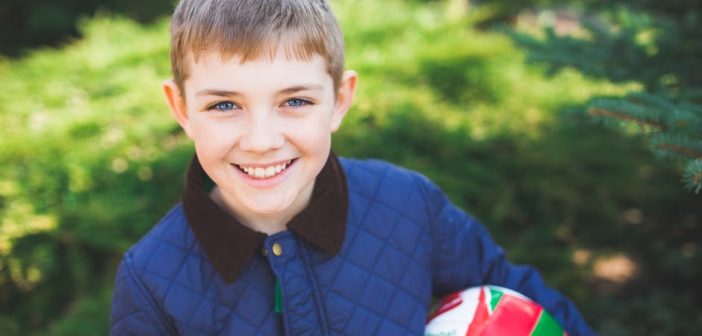Your nine year old is entering the preteens and possibly puberty, which can start between 8 and 12 for girls and 9 to 14 for boys. Many changes can be happening for your child at this delicate time. Here are some things to expect.
Physical/Health
Physical growth can vary between nine years old depending on the onset of puberty. Some may be susceptible to body issues as they compare themselves to peers.
Nine year olds generally have good gross motor skills and continually developing fine motor skills. Overall body control is improving enabling them to develop stills such as speed and strength. This age is a great time to get into a team or individual sport.
Your nine year old should be able to take care of their own personal hygiene but will still need reminders to brush teeth and hair. With a mixture of adult and baby teeth, setting up good routines for oral hygiene is very important at this age.
You may also find your child is starting to sweat and development body odour with the onset of puberty and natural increase of sweat and body oils. Encourage thorough cleaning of areas such as armpits and groin to establish good personal hygiene.

Cognitive development
Your nine year old is starting to learn more complex concepts in mathematics and languages and may start showing an interest in reading frequently for pleasure. Nine year olds can think independently, with improved decision making and critical thinking skills. This means your child will be keen to share their observation and opinions on this as they realise they can have independent views from their parents and peers.
Nine year olds are generally curious creatures and will be interested in how things works and why. They also have an increased attention span so will remained engaged in activities for longer periods than before.
School work and projects will become more complex so some nine year olds may feel increased pressure to succeed.
Emotions & Relationships
Most nine year olds recognise basic social norms and understand what is appropriate behaviour. They can control emotions such as anger most of the time and have empathy towards others as emotional maturity develops. However mood swings are not uncommon and their feelings may get hurt easily. Anxiety may appear over issues such as school performance or friendship conflict.
Most nine years will have developed solid friendships by this age. With a strong desire to fit in with peers, self-esteem can become an issue, as can peer pressure. Curiosity about relationships with the opposite sex may start to develop but most nine year olds will be shy about discussing this issue.
Most nine year olds are starting to assert their independence but will still need a lot of support and reassurance from parents.

The Internet, Social Media and Technology
Nine year olds will be very tech savvy and keen to spend a lot time of devices. Consider ways to manage screen time based on what works for your household.
Children of this age will still need close monitoring of content when using the internet and accessing open social media sites such as YouTube. Popular platforms such as Facebook, Instagram and Snapchat require a child to be over 13 to have a log in. This is due to the nature of content shared in these forums.
If your child has their own phone or device with internet access, consider a monitoring app and setting up ground rules to ensure your child’s privacy and safety.
Chores
Your nine year old is independent and physically strong enough to help with a number of chores around the house.
For example:
- Making beds
- Cleaning their bedroom
- Taking out garbage
- Vaccuming
- Taking care of pets (feeding and cleaning of cages etc)
- Folding laundry
- Empty dishwater
- Setting the table
- Assisting with younger siblings
- Yard work such as weeding, raking leaves and watering
Getting them to pitch in and help with the running of the household will help teach them responsibility.
Parenting a 9 year old
- Maintaining clear rules and routines will help guide your child as they start to test boundaries and assert their independence.
- As a preteen, it is important to talk to your child about their changing bodies and emotions so they know what to expect.
- Modelling positive attitudes towards health and fitness will help build your child’s confidence and set a good example.
- Keep lines of communication open with your child so they feel comfortable talking to you about what is happening for them. This may be simple day to day things or bigger issues and concerns.
- Enjoy this period where your child is coming into their own but still enjoys cuddles and spending time with family.

